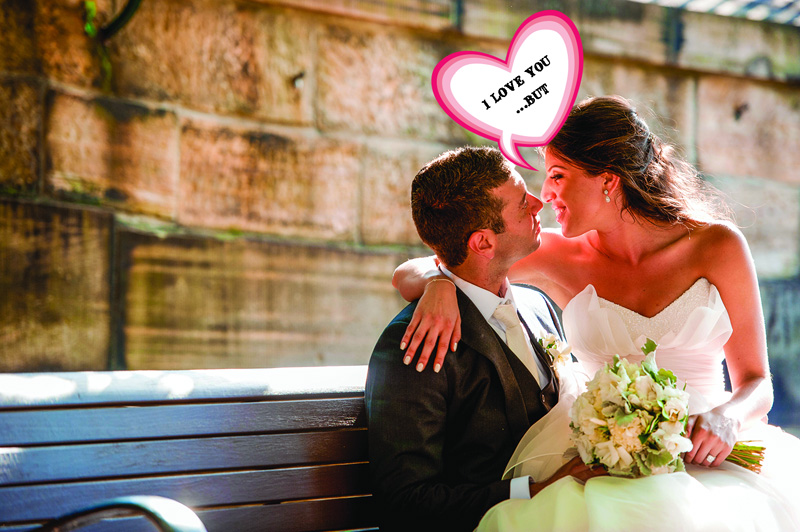
One of the most enjoyable parts of my vocation as a pastor is to officiate weddings. There is something so tender and beautiful about two people coming together to express, before friends and family, the love they have for each other. The flourish of love expressed in flowers, fancy clothes, food, drink, and music are a tangible reminder of the beauty and power of love to transform us. Ordinary moments between people are, at least for a moment, celebrated for what it really is: extraordinary. Love and marriage are special and worth the celebration.

There is something else I notice during a marriage ceremony. In the exchange of words and rings and kisses and promises, there is a uniquely definite quality to the whole day. Couples in love pronounce boldly, and often with tears of joy in their eyes, that they will be faithful, in conditions of sickness and health, to the very end. They sign documents affirming ‘before God and these witnesses’ that they mean what they say. While most things in life have an escape clause, weddings don’t. In as many ways as possible, people in love express their love without reservation. There is no ‘but’ in wedding vows.
Imagine a strange world where two people step forward to be married and promptly say, “I love you, but…” The word is so out of place. Love just does allow for a clause like ‘but’ that negates what was just stated. When we love, we love. No ‘buts,’ no exceptions, no objections or side deals.
Love, I like to think, is ‘unconditional high regard’ for another person. When we love someone, be it a neighbour, a child, a friend, or a spouse, we offer them affection without caveats and clauses. We don’t put a condition on that affection. Love may not exist otherwise. This is perhaps what makes love so radical. Conditions protect us from hurt, they shield us from risk, and few things are as risky as agreeing to share life with another person. But love, by its very nature, exists without condition.
When we remove ‘but’ from our love for others we may think we assume risk, but in fact we are opening the doors to the kind of trust that more deeply assures us that love will take root. This affects the way we love those around us. To say we love our neighbours, ‘but,’ only if they do or say or look like this or that, then we limit the kind of relationship we have. We will never really love our neighbours well if we are always hunting for the ways they disqualify themselves from our limited affection. If we love and offer ‘unconditional high regard’ for those around us, we may chance the possibility that true care, concern, affection, joy, and love actually emerge.
As you love your neighbourhood and those in your life, may you experience the kind of love that removes caveats, ‘buts,’ and clauses. May you discover a kind of hope, joy, and peace that only grows in places where love is truly unconditional







